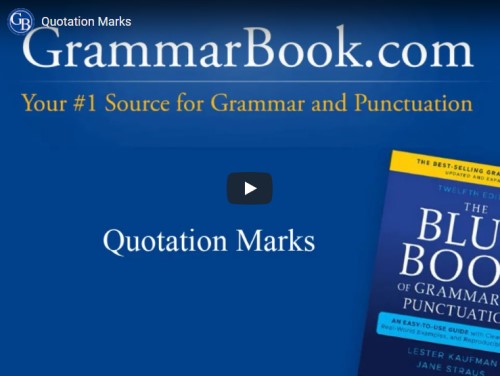|
There's a chance that at some point in your communication in English, you've read or written a word that sounds like the right one when spoken but is misspelled in print. One such example is the use of "you're" when the context means "your" (or vice versa).
This common tendency is the result of what are known as homophones, which can make English vocabulary confusing at times.
Homophones: Definition
A homophone is each of two or more words that sound the same but have different meanings and often different spellings. English includes thousands of homophones.
Because they are both similar and different, homophones can sneak past native speakers, so we can understand how they might especially puzzle those who are new to the language.
The word homophone comes from the Greek homóphōnos, meaning "of the same sound" (hómo- "similar, alike"; -phōnos "sounding").
As we are refining our English precision and eloquence, we want to be aware of misused homophones, which can sabotage otherwise good writing by distracting from it. Spell-checkers will often not catch them because the words are correctly spelled although incorrectly applied.
Misplaced homophones are frequently obvious, so they can cause readers to question our attention to the details and form of our content. We want to be alert to homophones when proofing and editing our writing because they can evade the careful eye by pronouncing themselves correctly to the inner ear.
Examples of Homophones
Some sources suggest that English includes more than six thousand homophones. In addition to you're and your, just a few common homophones we might write and read daily include:
| affect, effect |
complement, compliment |
sea, see |
| air, heir |
for, fore, four |
son, sun |
| blew, blue |
hear, here |
than, then |
| brake, break |
it's, its |
their, there, they're |
| cell, sell |
knew, new |
to, too, two |
Homophone Usage Examples
I too would like to have two of those pastries.
Do you know if their parents will be there?
James said he will sell that cell phone for a discount. |
If we read each sentence aloud, all of the underlined words sound the same, but in writing their spellings all differ.
What Is the Difference Between Homophones and Homographs?
Where homophones involve words that sound the same but have different meanings and spellings, other words have the same spelling but mean separate things and often have different pronunciations as well. These are known as homographs.
Some common homographs include:
| bass |
live |
refuse |
| bow |
minute |
right |
| desert |
novel |
ring |
| lead |
present |
wind |
Homograph Usage Examples
I would never desert you if we were stuck in the desert.
Mom and Dad will present the present to LaChandra tomorrow.
Who knew we would wind up having so much wind during the game? |
If we read each of these sentences aloud, the underlined words sound different, but when we write them, each word pair's spellings are the same.
Homophones and Homonyms
What if we have two words that have the same pronunciation and spelling but mean different things—i.e., they are both a homophone and a homograph? We would refer to these words as homonyms.
Some examples of homonyms are band, bark, bear, die, sign, and tie.
Homonym Usage Examples
When you have a chance, would you please help me tie my tie?
Yngwie believes he lost his wedding band when he was playing in his last band.
Even though the zoo employee said the bear was trained, I could not bear watching people pet it. |
When we read these sentences aloud, the underlined words all sound the same, and each word pair's spellings match. However, the words in each pair have different meanings.
For good measure, let's recap the distinctions among homophones, homographs, and homonyms:
| Type |
Characteristics |
Example |
| homophone |
same sound, different meaning and spelling |
blue, blew |
| homograph |
same spelling, different meaning and sound |
live (adj.), live (v.) |
| homonym |
same sound and spelling, different meaning |
tree bark; dog bark |
Another way to keep the distinctions is to recall the words by their roots. Each word's prefix is homo-, meaning "same." From there, we have -phōnos for "sounding" (homophone = "same-sounding"), the Greek origin graphein for "to write" (homograph = "same writing"), and the Greek origin onyma for "name" (homonym = "same name").
Related Topics
Gist or Jist: Which Version Is Correct?
Patients or Patience: Which Word Do You Need?
Confusing Words and Homonyms in English
|





